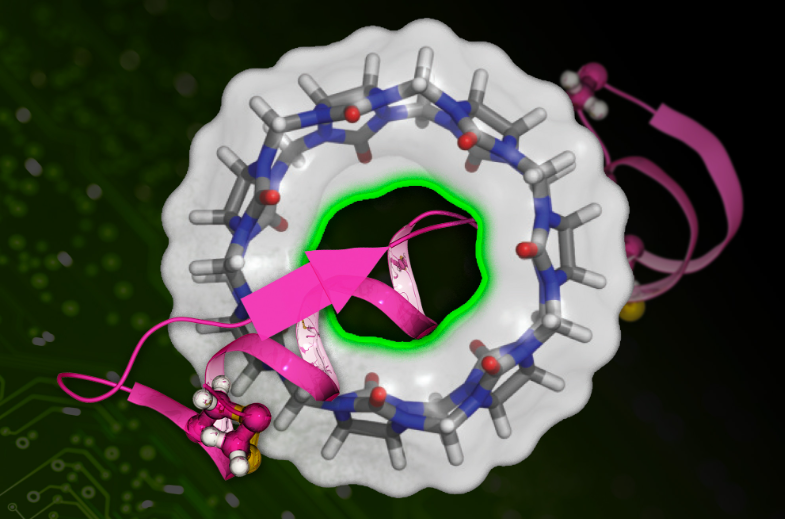How Can Quantum Computing Revolutionize Drug Discovery?
The drug discovery process is a complex, lengthy, and expensive journey. Quantum computing offers an avenue to revolutionize this life cycle, particularly in molecular modeling, molecular dynamics, and molecule screening. With faster and more accurate simulations, we are looking at groundbreaking advancements in the realm of drug research.
Quantum Chemistry Simulations in Pharmaceutical Research

Quantum chemistry simulations provide a detailed view of molecular reactions. When used in pharmaceutical research, these simulations can predict the behavior of new drug molecules, paving the way for efficient drug development. The intricacies these simulations can catch are beyond the capabilities of classical computers.
Applications of Quantum Algorithms in Molecule Screening

Molecule screening is vital in identifying potential drug candidates. Quantum algorithms provide the capacity to screen millions of molecules quickly, significantly accelerating the initial stages of drug development. This is an exciting stride towards discovering innovative drug solutions.
Enhancing Molecular Modeling with Quantum Computing
The structure and behavior of drug molecules largely determine their efficacy. Quantum-enhanced molecular modeling presents a detailed insight into the molecules, facilitating optimal drug design and increased predictability of drug reactions in biological systems.
Role of Quantum Machine Learning in Drug Discovery

Quantum machine learning amalgamates quantum computing’s processing power with pattern recognition. In pharmacology, this has the potential to unearth previously overlooked patterns and correlations, providing valuable insights into drug interactions and effects.
Quantum Simulations and Molecular Interactions
Understanding molecular interactions is pivotal in drug development. Quantum simulations offer a deep dive into these interactions, aiding in the design of drugs with tailored effects, minimizing side effects, and optimizing therapeutic benefits.
Quantum-inspired Drug Discovery Approaches
Incorporating quantum principles into drug research has unveiled approaches that are both innovative and efficient. From quantum-assisted virtual screening to quantum-enhanced molecular docking, these methods are reshaping drug discovery paradigms.
Challenges and Opportunities of Quantum Computing in Drug Discovery
While quantum computing brings immense potential, it also presents challenges. The technology is in its infancy, and integrating it into the pharmaceutical realm requires robust strategies. Yet, the opportunities are boundless, with the promise of drugs that are more effective, safe, and tailor-made for individuals.
Quantum Optimization for Molecule Screening
Traditional drug discovery processes involve a series of trial and error methods, making them time-consuming and resource-intensive. The advent of quantum optimization stands poised to change this. Quantum computers can sift through vast datasets, optimizing molecule screening processes, thereby narrowing down potential drug candidates in a fraction of the time taken by classical computers. This expedites the discovery phase, allowing researchers to move to the validation phase much quicker.
Quantum-enhanced Molecular Docking
A critical step in drug discovery is understanding how potential drug molecules interact with biological targets. Molecular docking provides insights into this. With quantum-enhanced techniques, molecular docking achieves a new level of precision. Quantum computing enables the examination of numerous potential docking configurations simultaneously, predicting the most probable interactions and ensuring that drug candidates have a higher likelihood of being both effective and safe.
Quantum Computing for Drug Target Identification
Identifying the right target for a potential drug is paramount. It determines the drug’s efficacy, mechanism of action, and potential side effects. Quantum computing, with its unparalleled processing power, can analyze complex biological systems, helping researchers identify targets that may have been elusive to traditional methods. This precision targeting is set to drastically increase the success rates of drug trials.
Quantum Algorithms for Molecular Structure Analysis
The molecular structure of a drug determines its properties and behavior in biological systems. Quantum algorithms can analyze molecular structures in extreme detail, revealing insights about stability, reactivity, and interactions. These revelations empower pharmacologists to design drugs with desired properties and minimal unforeseen reactions.
Quantum Computing in Drug Synthesis
While much of quantum computing’s application in drug discovery has been in the research and design phases, there’s emerging potential in drug synthesis. Quantum algorithms can predict the most efficient synthesis routes, optimizing resource use, and reducing production times. This not only streamlines the drug production process but also can lead to cost savings, making medications more accessible.
Potential Risks and Limitations
While the potential of quantum computing in drug discovery is undeniable, it’s crucial to approach it with caution. Quantum systems are incredibly sensitive, and errors can creep in. Moreover, while quantum computers can process vast amounts of data quickly, their results need validation through classical methods to ensure accuracy. Quantum hardware is also in its developmental stages, and consistent, large-scale deployment in the pharmaceutical industry might still be a few years away.
FAQs on Quantum Computing in Drug Discovery
How do quantum-assisted virtual screening improve drug candidate identification?
Quantum-assisted virtual screening offers the potential for faster and more accurate screening processes, identifying drug candidates that classical computing techniques might overlook.
How is quantum computing transforming drug target identification?
By enabling detailed molecular simulations and insights, quantum computing helps researchers pinpoint drug targets more effectively, ensuring a higher success rate in drug development.
What advancements in quantum computational chemistry benefit pharmaceuticals?
From detailed molecular dynamics studies to understanding complex biological processes, quantum computational chemistry provides invaluable insights that drive innovative drug research.
What are the limitations of using quantum computing in drug discovery?
Quantum computing is a nascent field. While promising, it requires considerable investment, skilled professionals, and rigorous testing to ensure its applications in drug discovery are both safe and effective.
How are pharmaceutical companies adopting quantum computing?
Leading pharmaceutical firms are increasingly partnering with quantum tech companies, investing in research, and adopting quantum methods to streamline their drug discovery processes.
Also Read: How is Accenture Addressing the Emerging Market for Quantum Computing?
Final Thoughts
The fusion of quantum computing and drug discovery is a testament to the potential of interdisciplinary collaboration. As the boundaries of what’s possible expand, the promise of a healthier future becomes more tangible. Through continued research, investment, and experimentation, quantum computing will undoubtedly play a pivotal role in shaping the next era of medicine.
To sum it up, the insights shared in this article about “Which Part of the Drug Discovery Life Cycle can Quantum Computing Impact the Most?” have sought to demystify the subject matter and provide you with a solid foundation for further exploration.
Yvette Stuckey, the captivating wordsmith and visionary blogger, effortlessly weaves tales of inspiration and empowerment. Her eloquent prose transcends boundaries, taking readers on a transformative journey through her thought-provoking narratives. Embrace the magic of Yvette’s words and embark on a literary adventure like no other.



